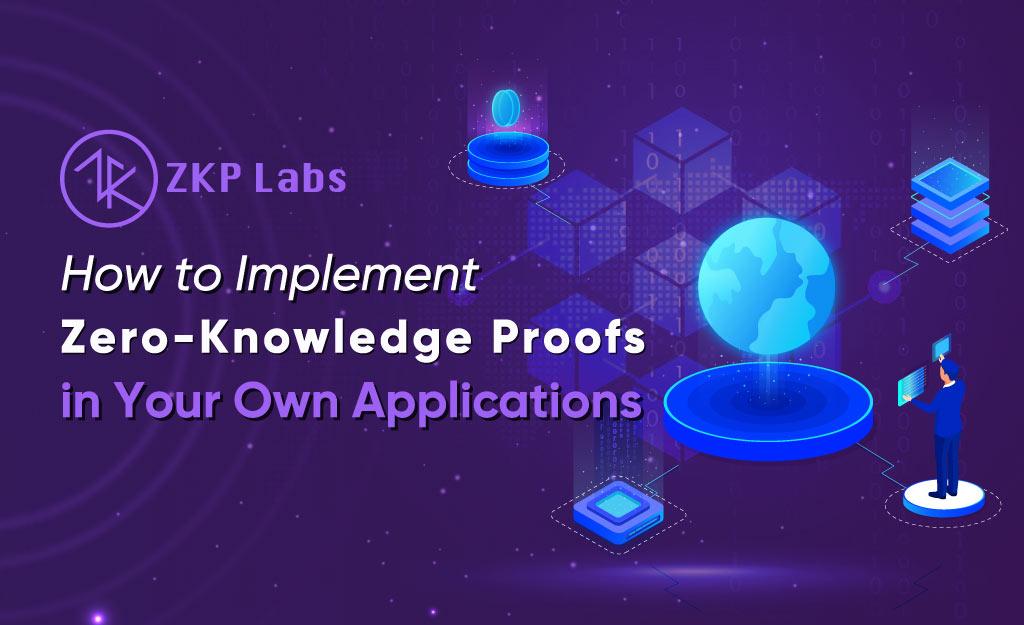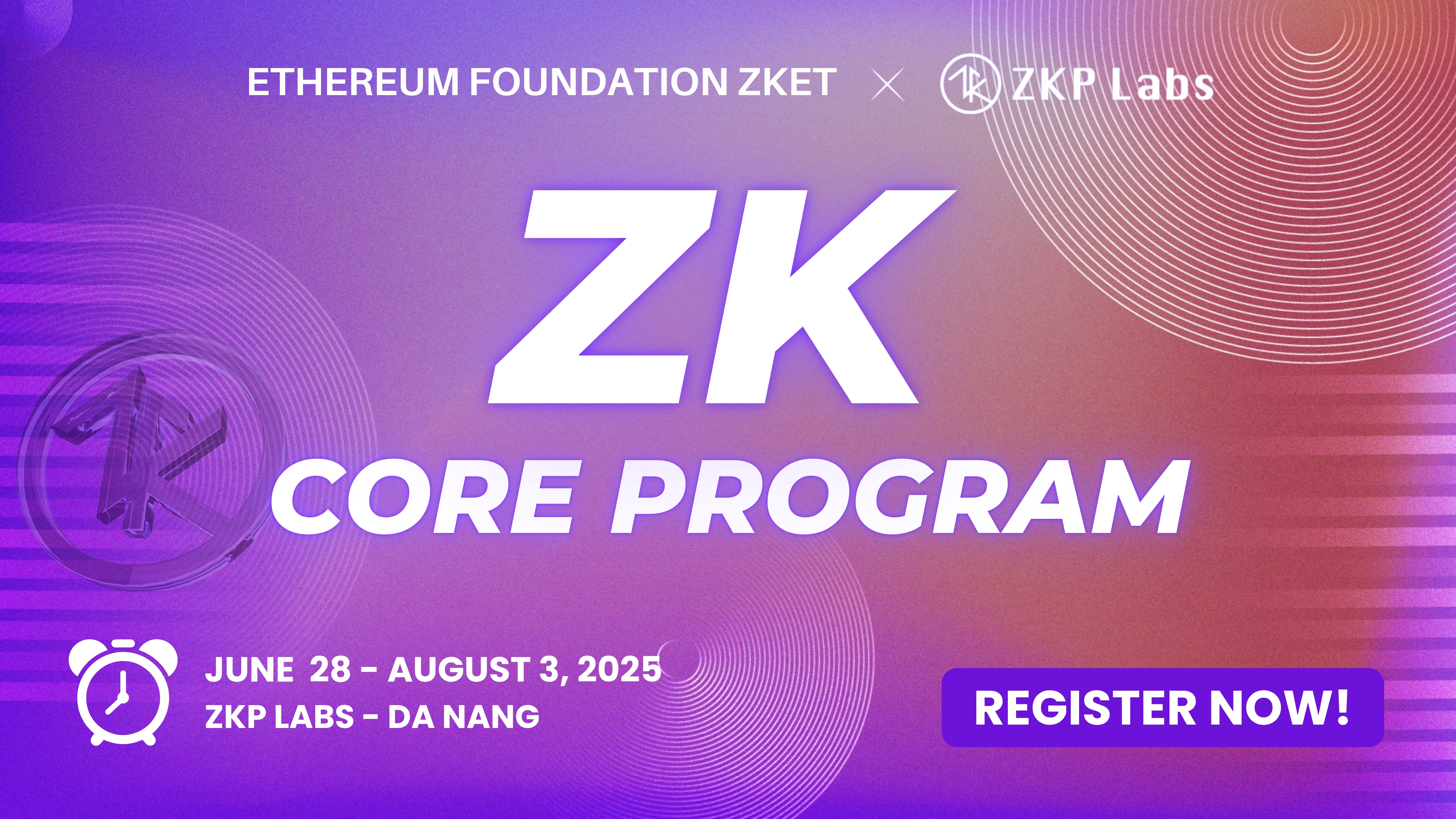How to Implement Zero-Knowledge Proofs in Your Own Applications
Table of Contents

Zero-knowledge proofs (ZKPs) are a powerful cryptographic tool that can help enhance the security and privacy. This property has numerous potential applications, including secure authentication, privacy-preserving data sharing, and secure online voting. In this article, we will explore how to implement zero-knowledge proofs in your own applications.
Step 1: Choose a ZKP Library
The first step in implementing zero-knowledge proofs in your application is to choose a ZKP library. There are several ZKP libraries available, including arkworks, halo2, plonky2. Each library has its own strengths and weaknesses, and the choice of library will depend on your specific use case.
For example, Halo2 is an open-source library for implementing zero-knowledge proofs (ZKPs) based on the Halo protocol, which is a recursive proof composition technique that enables very efficient verification of large computations. The library includes a range of tools for building circuits, generating and verifying proofs, and integrating with other applications. Halo2 can be used in a variety of real-world applications, such as decentralized finance (DeFi) protocols and blockchain-based voting systems.
Step 2: Define the Statement to be Proved
The next step in implementing a ZKP is to define the statement that you want to prove. This statement should be something that is difficult to prove without revealing additional information. For example, if you want to prove that you know a secret value without revealing the value itself, you could define the statement as "I know a value x such that H(x) = y", where H is a one-way hash function and y is a public value.
Step 3: Construct the ZKP Circuit
Once you have defined the statement to be proved, the next step is to construct the ZKP circuit. A ZKP circuit is a mathematical representation of the statement that can be used to generate a proof. This circuit should be designed so that it can be evaluated without revealing any additional information beyond the truth of the statement.
For example, if you want to prove that you know a value x such that H(x) = y, you would construct a ZKP circuit that takes as input x and y and outputs a single bit indicating whether or not the statement is true. This circuit should be designed so that it can be evaluated without revealing any additional information about x.
Step 4: Generate the ZKP Proof
Once you have constructed the ZKP circuit, the next step is to generate the ZKP proof. This proof is a set of cryptographic parameters that can be used to verify the truth of the statement without revealing any additional information about the statement.
To generate the proof, you will need to run the ZKP circuit on your statement using a technique called the Fiat-Shamir heuristic. This technique involves hashing the inputs to the circuit to generate a random number that is used to generate the proof. The proof can then be verified using the cryptographic parameters.
Step 5: Verify the ZKP Proof
The final step in implementing a ZKP is to verify the proof. To verify the proof, you will need to have access to the cryptographic parameters used to generate the proof. You can then run the ZKP circuit on the statement using the same parameters and check that the proof is valid.
If the proof is valid, you can be confident that the statement is true without revealing any additional information. If the proof is invalid, you can reject the statement and take appropriate action.
Conclusion
In conclusion, zero-knowledge proofs are a powerful tool that can help enhance the security and privacy of applications. By following the steps outlined in this article, you can begin to explore the potential of zero-knowledge proofs in your own applications and contribute to the development of a more secure and private online world.
About ZKP Labs
ZKP Labs is a non-profit organization that focuses on building a vibrant and supportive community in Southeast Asia dedicated to the advancement of Zero-Knowledge Proof (ZKP) technology. Through events, workshops, and training programs, we strive to create an environment that fosters collaboration, knowledge-sharing, and growth, empowering community members to contribute to the development and adoption of ZKP.
Categories
Event Recap
5
Zero Knowledge Proofs 101
32
Top Posts
1
How to start learning ZKPs as a beginner?
02 March 2023
2
Announcing the ZKP Advocacy Program Powered by Mina Foundation: Your Path to Zero-Knowledge Mastery
24 October 2024
3
What Jobs Can You Do About ZKPs?
15 March 2023
4
A Beginner's Guide to Understanding the Different Types of Zero-Knowledge Proofs
24 February 2023
5
Cơ chế và tác động của hành động làm giá trong thị trường tiền điện tử
21 December 2023
6
Khi Nào Zero-Knowledge Proofs Có Ích?
17 March 2025
7
Phân tích lỗ hổng lớn trong mạng zkEVM của Polygon
06 December 2023
8
Phân tích hành động lái giá: Tại sao hầu hết giá của dự án đều giảm?
21 December 2023
9
Hiểu về Plonky2: Một Framework SNARK hiệu suất cao dựa trên Rust
27 March 2025
10
Tìm kiếm cơ hội đầu tư vào Blockchain mô-đun
21 December 2023
Tag
Zero Knowledge Proofs


